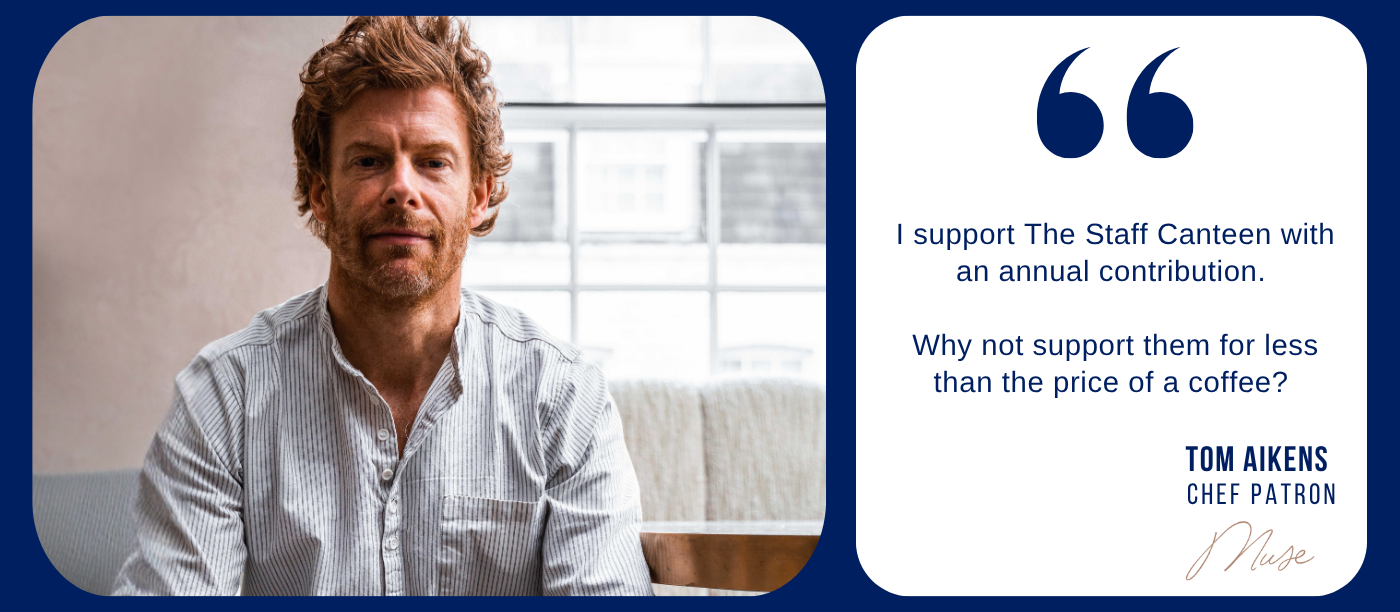Why chef Paul Foster isn't doing veganuary, but organuary

With restaurants closed this January, we've seen fewer of the big chains' veganuary campaigns pushing plant-based panaceas left right and centre.
And yet, statistics show that in the UK, over half a million people took the pledge to cut out all animal products from their diets this month - a record since the pledge began 7 years ago.
Whether they're doing it for the right reasons - better health, the environment and overall sustainability - or not, there are obvious pitfalls to making binary dietary choices.
We spoke to Paul Foster, owner of Michelin-starred Stratford-Upon-Avon restaurant, Salt, who has decided to champion those same goals in a different way, by celebrating Organuary.
The chef explained that while he isn't overtly opposed to veganuary in concept, "I just think that you need to present both sides of it."
If we all went vegan for a month, he said, "the issues would be immeasurable in terms of the farmers, the animals, even the intensively-reared animals: stopping that supply chain for a month can cause all sorts of issues."
"For me, it comes down to the importance of good farming, choosing the right meat and using it correctly and respectfully," may it be for the environment, animal welfare, health and cost-effectiveness.
Teething problems?
Studies suggest that British consumers are making more ethical choices with regards to what they buy and where they buy it.
Support for local producers and businesses is on the rise, fairtrade and organic produce sales rose by unprecedented margins between 2019 and 2020, to the point that, alongside other environmentally-friendly practices, the shift has accelerated efforts to tackle climate change.
And indeed, the past year, Paul said, "I've seen a big increase in that, and in the way people talk."
This points to the fact pledges like veganuary can be beneficial or detrimental, and that blindly following trends or passive lack of scrutiny is where things get tricky.
"If your big superpowers like your McDonald's are big drivers of this, are they getting the right message across? Is it being done for the right reasons and in the right way?"
"I challenge people on this all the time when they're doing veganuary. I ask them why they're doing it and if they say their health but they're happy to have crazy processed burgers and things, I tell them they may as well have a McDonald's beef burger."
And, sadly, because we live in a world of Instagram-flaunting, "maybe there are people doing it for virtue signalling - the 'look at me, I did veganuary'

crowd, or some influencers. It makes them feel like they've done something, when they've literally done nothing."
Holding the big food firms to account
The real challenge for consumers is that they have a restricted role to play in influencing big corporations' behaviours, especially given the higher price tag often associated with ethical consumption.
"As humans the majority is always going to choose cost first - the cheap, affordable and convenient." Paul said.
"There has to be a certain amount coming from the top, the government putting legislation in place to stop certain things."
Taking the example of plastic-bottled water, and the fact that even people who want to make environmentally sound decisions still buy it, he said: "We can't put all that weight on consumers to make that choice. Consumer power is very powerful, but if the option is there there's a massive part of society that are going to take those options - because it's available, it's cost-effective and it's convenient."
Think
Not as prescriptive as a month-long vegan diet. the Organuary campaign was launched by a registered charity called the Public Health Collaboration, to promote the consumption of organ meat to "minimise waste and maximise nutrition."
"I've kept my diet the same as usual for January," Paul explained.
"The way I eat at home - me and the kids will have red meat once, maybe twice a week in some form, then we eat fish, some vegetarian meals, we eat chicken, so that's for reasons of the environment, reasons of cost and health."
"It's balanced, it's healthy generally - we have unhealthy stuff and treats of course we do. I tend not to have bad stuff in the house, but it's not like I'm not having it in my diet."
As for eating more organ meat, he decided to buy more this month, but, he said, "I'm not trying to pioneer this and make it into 'we all should do it' and get militant about it."
"I think it's just an important thing to add to the mix."
A few decades back, organ meat was much more popular, he said, but not always cooked in a way that brought out its best.
"It tended to always be done really badly; I think that's why it always got such a bad name. I remember liver at school, you knew when you were having it because it just stunk out the canteen, it was awful."
"You were talking maybe pig's liver that was braised for hours and was grey and stank."
"I think it needs people to get behind it to show how lovely it can be."

The Staff Canteen has always been more than a website—it’s a community, built by and for hospitality. We share the wins, the challenges, the graft, and the inspiration that keeps kitchens alive.
We believe in staying open to everyone, but creating this content takes real resources. If you’ve ever found value here—whether it’s a recipe, an interview, or a laugh when you needed it most—consider giving just £3 to keep it going.
A little from you keeps this space free for all. Let’s keep lifting the industry, together.














